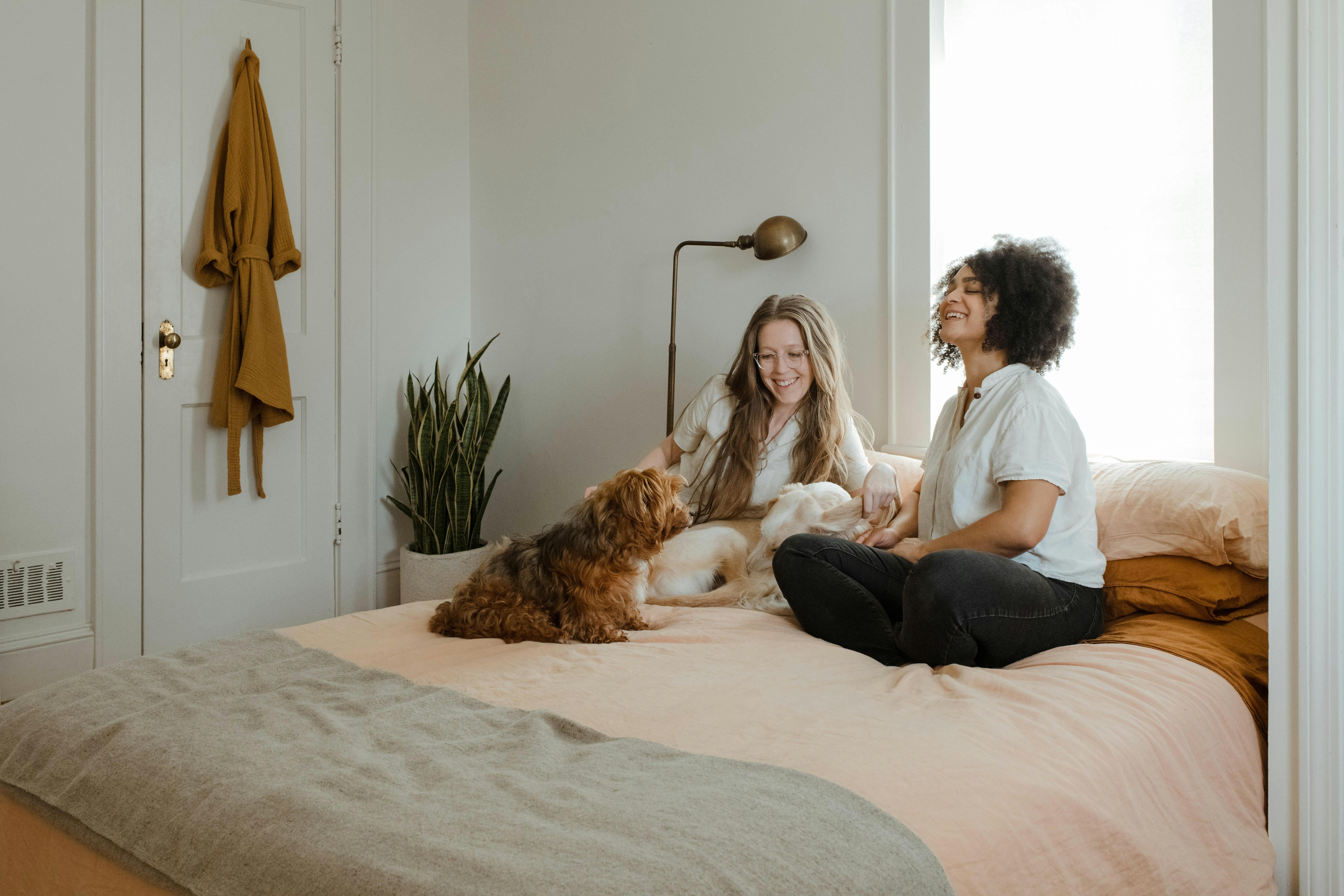If you’ve recently let a mixed breed into your heart and home, you’ve made a furbulous forever friend! But you may be wondering how to care for them. Do mixed breeds have the same care requirements as purebreds, or do they have any different needs you should be aware of?
Mixed breeds are just like any other dog, but unlike a purebred, you don’t always get a set of historic behavioral and medical traits to know what to expect. In this guide, we’ll explain how to care for your mixed breed with a few simple tips. But first, let’s find out what makes a mixed breed.
All dogs are descended from wolves who were selectively bred to help us with protection, herding, and hunting. For most of domesticated dog history, all dogs were mixed until around the mid-1800’s when distinct breeds began to be recognized. Since then, “purebred” dogs have become associated with specific characteristics that are easy indicators of what traits that dog will have.
Today, a mixed breed can be a dog that is a cross between two purebred breeds, also known as a cross-breed, hybrid or designer dog. It can also refer to indigenous dogs, or dogs native to an area that have no known purebred parentage. Most commonly, though, the term mixed breed refers to mutts, or dogs who are a mix of unknown purebred and/or other mixed breeds, and are the kind of dog most commonly adopted out of shelters and rescues.
Unlike with a purebred, a mixed breed dog doesn’t come with historically known traits or issues. And while you can get your dog genetically tested to see what breeds may be in their DNA, these are often poor indications of what traits your dog will actually exhibit. Instead, you’ll be looking for clues based on your mixed breed’s behavior, appearance and size to tell you what they need to stay healthy.
To get you started, here are 5 basic tips to help you care for your mixed breed dog.
#1 Give the Right Nutrition
While some commercial dog foods are marketed for specific breed
types, most foods are generic, or based on a dog’s size or age. Overall, all
dogs need a high-quality, balanced diet, and should have a daily calorie intake
limit to prevent becoming overweight. Some special considerations include:
- Tiny and toy puppies that may need to be fed more often to
prevent hypoglycemia.
- Large or giant breed dogs that can benefit from a
large-breed formula which can reduce the risk or severity of hip dysplasia and
other joint issues.
#2 Practice Routine Care
Regardless of what breeds may have contributed to your
furvorite furball, they’ll need regular care to keep them healthy. While most
routine care is the same for all dogs, there are some who may need additional attention
in certain areas. Care includes:
- Brushing your dog’s teeth a few times a week, and getting
periodic dental cleanings by your veterinarian.
- Brushing your dog’s coat once a week, or more if your dog
has longer hair. Keep an eye on the hair around the eyes and anus, clipping
when necessary to prevent issues.
- Floppy ears will require regular cleanings to prevent
infections.
- Bathing your dog regularly with a specially formulated dog
shampoo to reduce skin irritations and environmental allergies.
- Trimming your puppy’s
nails when young, and continuing through adulthood to prevent injuries.
#3 Keep Fit with Exercise
Staying active reduces obesity, keeps joints and muscles
healthy, and is just plain fun! From
walks
to fetch, and even outdoor sports, all dogs should have regular exercise, but it
can be tough to know how much
activity each kind of
dog actually needs. For mixed breeds, you may be judging by their size. Some
additional factors can include:
#4 Maintain Health
Maintaining your dog’s health throughout their lifetime can
reduce some serious medical conditions as they age. While some may be
unavoidable due to genetics or nature, there are a lot of health issues you can
prevent with these steps:
- Keeping your dog current on their vaccinations to prevent
infections, such as parvo,
distemper and rabies.
- Using a monthly parasite preventative to stop fleas, ticks who
can transmit lyme disease,
and worms from
infesting your dog.
- Keeping an eye on large and giant dogs’ movements who tend
to have bone and joint issues.
- Scheduling regular exams with your veterinarian, and
discuss what you should be watching for in your mixed breed dog.
#5 Deal with Behavioral Issues
Your mixed breed pooch may have the stubbornness of a
Shibu Inu, the clinginess of
a
Viszla or even the territorial
barking of a
Yorkie,
but you may never know unless they show those behaviors. The truth is, any dog
can exhibit behavioral issues due to genetics, boredom, lack of proper
socialization, anxiety, or even a stressful incident, and the ways to deal with
them are the same regardless of breed. You can help to prevent such issues by:
- Socializing your puppy with new people, dogs and situations.
- Training your puppy with basic commands using positive
reinforcement.
- Providing your dog with enough activities, with and without you,
to prevent boredom, and the chewing, digging and anxieties that may come with
it.
- Addressing specific issues right away, such as trouble with
housetraining, excessive barking, and separation
anxiety.
- Spending quality
time with your dog to bond and help them feel more secure.
With a bit of attention, and a lot of love, you and your mixed breed can enjoy a healthy and happy life together. Woof!


